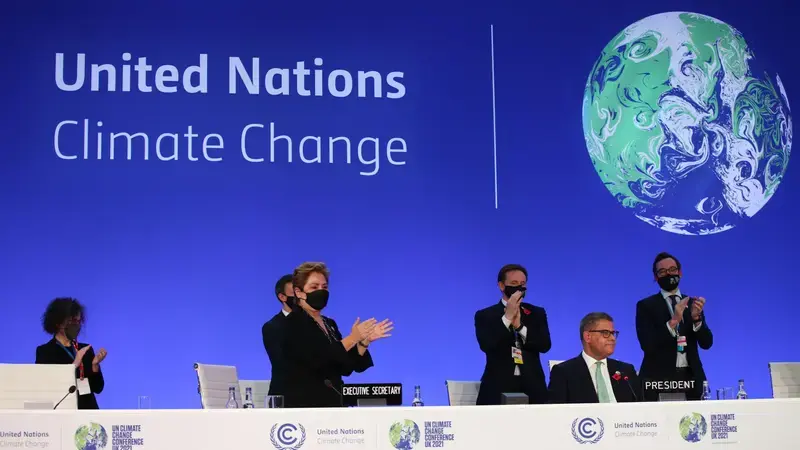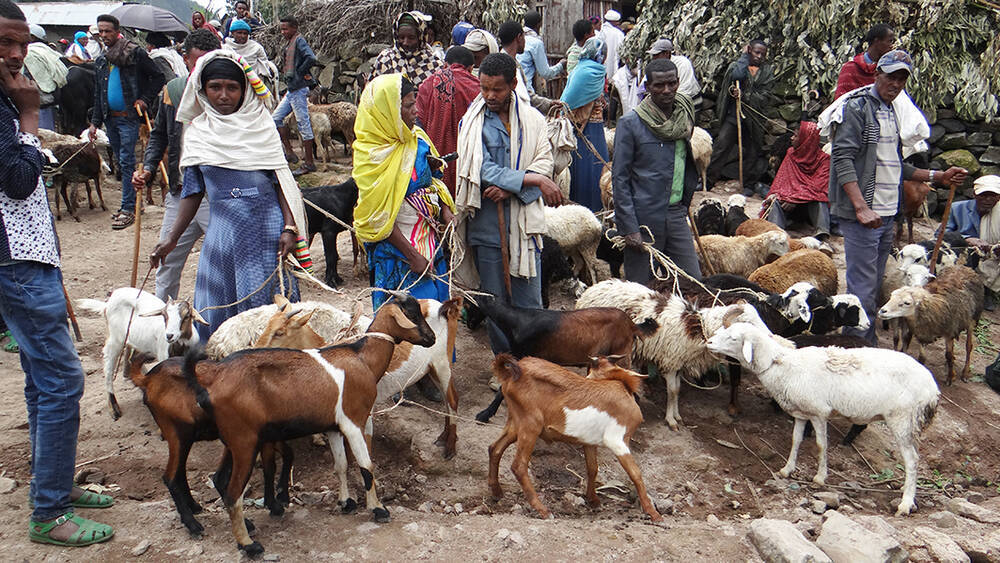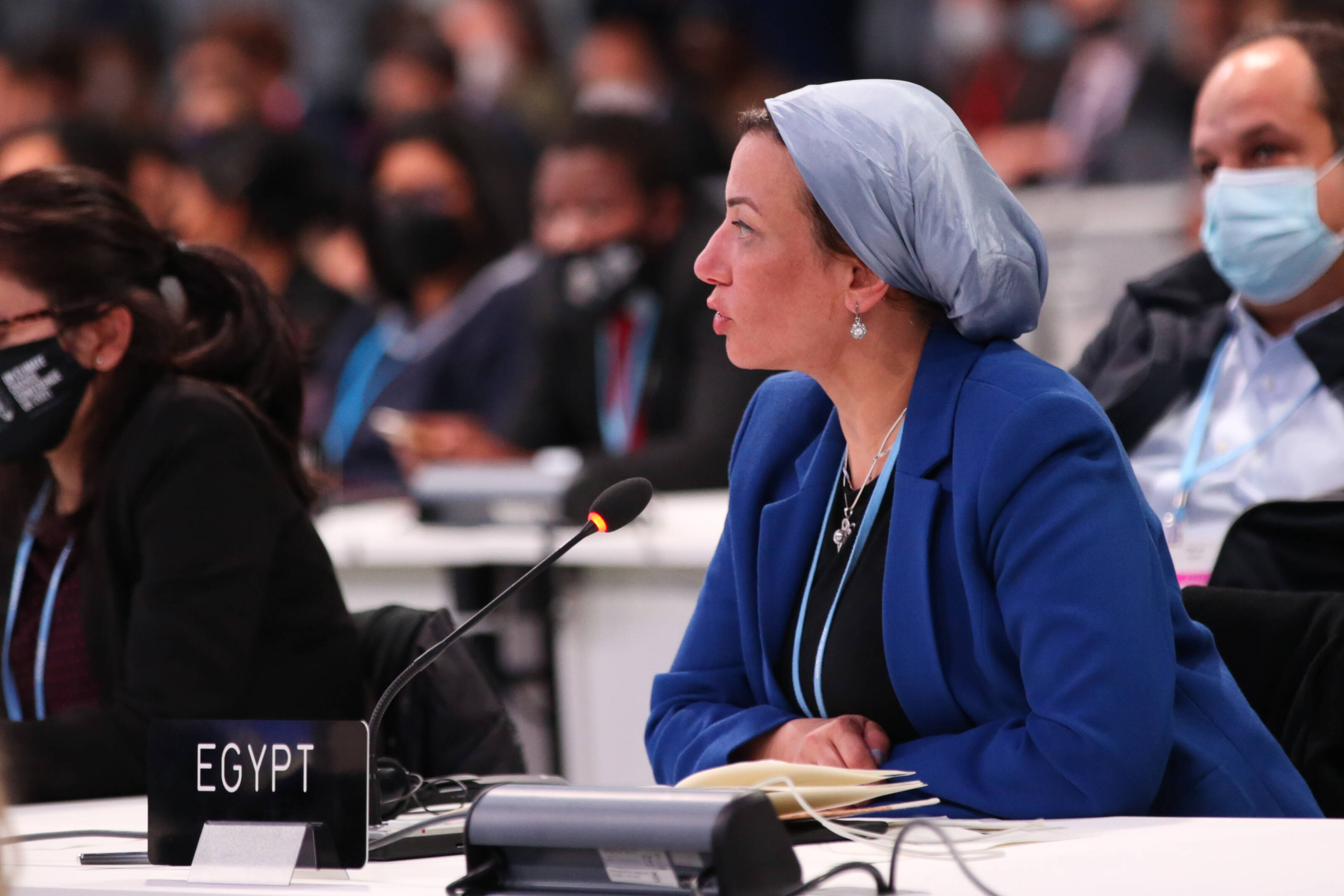COP wakes up to climate-friendly agriculture

COP26, the 26th yearly round of UN Framework Convention on Climate Change (UNFCCC) climate negotiations held in Glasgow, wrapped up on November 14th after two weeks of intense debate.
While the Glasgow Climate Pact came short of delivering on coal and climate finance, considerable progress was made on mitigation, particularly cutting emissions - including those emitted by agriculture.
CGIAR's strong presence at the conference supported the efforts to simultaneously reduce the climate change impacts on food systems and lower agriculture's contribution to global warming.
Until COP26, food systems – how we produce, gather, transport, process, consume, and dispose of food – had been mostly sidelined by climate negotiators. While food remains the universal source of life, the way it is produced often comes at unsustainable costs to the climate, the environment, water resources, and human health and wellbeing.
"Agriculture has always been a second-tier priority in climate negotiations," explains Dr. Ajit Govind, ICARDA's climatologist.
"It boils down to the fact that until recently, agriculture and agri-food systems were mostly perceived as being responsible for emissions rather than part of the solution," he says.
Key agriculture pledges and commitments announced at COP26:
Methane (CH4) is emitted from coal/oil/gas production, landfills, and agriculture. The agricultural sector, particularly livestock and paddy rice producers, is responsible for 40% of all CH4 discharged into the atmosphere.
Although methane typically won't remain in the atmosphere for more than a decade, its warming potential is 80 times greater than carbon dioxide (CO2). The Intergovernmental Panel on Climate Change (IPCC) has declared methane responsible for at least a quarter of today's global warming.
At COP26, 104 countries representing 70% of the world's economy and half of global anthropogenic methane emitting countries signed a commitment to slash their methane emissions by 30% between 2020 and 2030.
Led by the United States and the European Union, the Global Methane Pledge includes dryland countries such as Iraq, Jordan, Libya, Morocco, Saudi Arabia, Tunisia, and the United Arab Emirates - all within the Central and West Asia and North Africa regions in which ICARDA operates.

Solutions exist to reduce methane emissions from livestock, including maintaining herd numbers, producing more efficient cows with lower carbon footprints, and making better animal feed widely available.
CGIAR researchers at the International Livestock Research Institute (ILRI) have developed a methodology to derive localized data on methane emitted by African livestock systems and nitrous oxide –a long-lasting GHG with great warming potential- from excessive fertilizer nitrogen application.
AIM4C is a joint initiative for sustainable agriculture led by the United States and the United Arab Emirates (UAE).
As part of AIM4C, 30 countries -including Morocco and the UAE- have committed to increasing investments in technology, innovations, and public-private partnerships (PPPs) to enhance climate-smart agriculture and sustainable food systems.
Over 4 billion USD were pledged, including 1 billion USD from the United States, for the initiative. Bill Gates also announced that the Bill & Melinda Gates Foundation would allocate an additional 315 million USD over the next three years to CGIAR.
- Fast Tracking Climate Solutions from CGIAR Genebank Collections
As part of AIM4C, a new 40 million USD initiative led by CGIAR, in partnership with the Foundation for Food & Agriculture Research and the Bill & Melinda Gates Foundation, will unlock key climate-resilient traits for crops from CGIAR's vast global genebank collections.
Dr. Zakaria Kehel, ICARDA's Research Leader for Genetic Resources, explained that developing new climate-smart varieties of essential global crops is vital in the context of increasing climate-related challenges.
Another exciting agriculture-related campaign was announced at COP26. Co-chaired by the UK Foreign, Commonwealth Office (FCDO) and the CGIAR Research Program on Climate Change, Agriculture and Food Security (CCAFS), "ClimateShot" will increase investment in agricultural R&D and innovation to create climate-resilient and low-emission technologies and practices. It will also focus a third of its R&S effort on demand-driven solutions, showcase successful business models and deploy innovations at scale through PPPs, and forge consensus on proven methods.
The informal alliance brings together changemakers from across the climate, agriculture, and food sectors to close the 'innovation gap' in agriculture and food systems, which hold back current ambitions in adapting to - and mitigating the impact of - climate change.
At COP26, governments considered the outcomes of the last three workshops of the Koronivia Joint Work on Agriculture - a landmark agreement established at COP22 in Marrakesh - that integrates soils, nutrient use, water, livestock, and methods for assessing adaptation with the socio-economic and food security dimensions of climate change.
At COP26, differences between countries on the term 'agroecology' held back its adoption. Agroecology now appears in the text between brackets, which means that it might not be part of the final decision, which will be considered and adopted at COP27 in Sharm El-Sheikh in November 2022.
- Egypt will host COP27

ICARDA was thrilled when Egypt officially became the next COP host during COP26.
"It is a big responsibility for Egypt to take over, but we stand in solidarity and cooperation with the entire world," said Dr. Yasmine Fouad, Egypt's Minister of Environment and President of the Convention on Biological Diversity (CBD) for the past three years, in reaction to the announcement.
ICARDA's climatologist Dr. Govind hopes that COP27 will deliver more than previous UNFCCC rounds in agriculture and agri-food systems.
"Egypt has much to offer between the Nile Delta, which has been a food basket since antiquity, and the exceptional, yet fragile, Red Sea marine ecosystem just a stone-throw away from the next COP27 venue."
